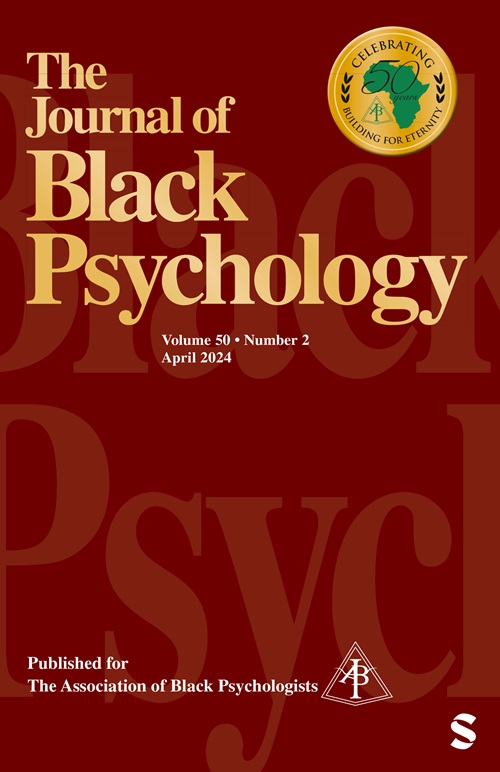黑人男性的经历:男子气概的形式及其对心理求助变量的影响
IF 2.2
3区 心理学
Q2 PSYCHOLOGY, MULTIDISCIPLINARY
引用次数: 2
摘要
在美国,黑人成年人寻求心理保健的比例低于白人成年人,部分原因是寻求心理帮助是一种耻辱。需要心理保健的黑人男性面临着与种族和性别交叉相关的双重障碍,因为男性对寻求帮助的态度比女性更消极。为了了解黑人男性的求助态度,本研究考察了传统男性气质、传统/黑人男性气质和黑人男性气质对公众求助羞耻感的直接影响,以及对求助自我羞耻感和心理求助态度的间接影响。结果表明,黑人男子气概和传统/黑人男子气概预示着更大的公众耻辱感,这预示着更大的自我耻辱感,反过来又预示着更少的积极心理寻求帮助的态度。本研究还发现,传统男性气质与公众耻辱感之间存在意想不到的负相关关系,而对心理求助态度则有间接的积极影响。结果支持为黑人社区量身定制的减少耻辱的干预措施。本文章由计算机程序翻译,如有差异,请以英文原文为准。
Experiences of Black Men: Forms of Masculinity and Effects on Psychological Help-Seeking Variables
Black adults in the United States seek mental healthcare at a lesser rate than White adults, attributed in part to the stigma of seeking psychological help. Black men in need of mental health care face a double barrier associated with the intersection of their race and gender, as men report more negative attitudes toward help-seeking than do women. To understand help-seeking attitudes among Black men, this study examined the direct effects of traditional masculinity, traditional/Black masculinity, and Black masculinity on public stigma of help-seeking as well as the indirect effects on self-stigma of help-seeking and psychological help-seeking attitudes among a sample of Black men in the United States (N = 160). Results demonstrated that Black masculinity and traditional/Black masculinity predicted greater public stigma, which predicted greater self-stigma and in turn less positive psychological help-seeking attitudes. This study also found an unexpected negative relationship between traditional masculinity and public stigma and an indirect positive effect on psychological help-seeking attitudes. Results support tailored stigma-reduction interventions for the Black community.
求助全文
通过发布文献求助,成功后即可免费获取论文全文。
去求助
来源期刊

Journal of Black Psychology
PSYCHOLOGY, MULTIDISCIPLINARY-
CiteScore
8.00
自引率
5.80%
发文量
22
期刊介绍:
The Journal of Black Psychology publishes scholarly contributions within the field of psychology toward the understanding of the experience and behavior of Black populations. This includes reports of empirical research and discussions of the current literature and of original theoretical analyses of data from research studies or programs. Therefore, the Journal publishes work in any of the areas of cognition, personality, social behavior, physiological functioning, child development, education, and clinical application, in addition to empirical research and original theoretical formulations outside traditional boundaries, all integrated by a focus on the domain of Black populations and the objective of scholarly contributions.
 求助内容:
求助内容: 应助结果提醒方式:
应助结果提醒方式:


